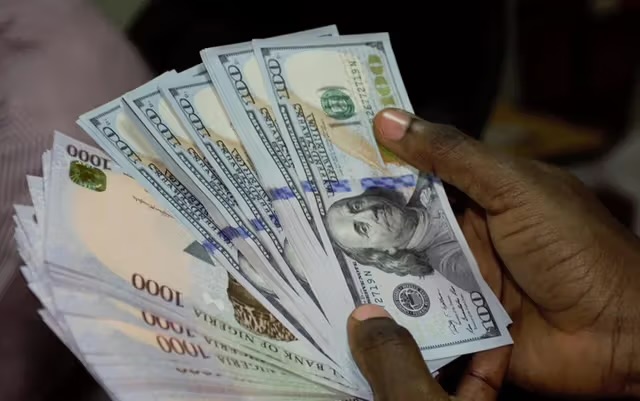The Nigerian Senate has introduced a bill to prohibit the use of foreign currencies, including the U.S. dollar, for local transactions within the country. Titled “A Bill for an Act to Alter the Central Bank of Nigeria Act, 2007, No. 7,” the proposed legislation recently passed its first reading in the Senate.
If enacted, the bill will mandate that all payments, including salaries, bonuses, and other financial transactions, be conducted exclusively in the Nigerian Naira. This move, according to proponents, aims to reduce Nigeria’s reliance on foreign currencies, promote economic stability, and strengthen confidence in the Naira.
The bill’s sponsor, Senator Nwoko, has long advocated for reducing the dominance of foreign currencies in Nigeria’s economy, describing it as a “colonial relic.” He argues that the widespread use of foreign currencies devalues the Naira, exacerbates economic challenges, and undermines Nigeria’s monetary independence.
“The extensive use of foreign currencies in our financial transactions continues to erode the value of the Naira and fosters a dependency that hinders Nigeria’s economic sovereignty,” Senator Nwoko stated. “This legislation is a step toward restoring confidence in our local currency and reducing unnecessary pressures on our economy.”
Dollarization, a term used to describe the excessive reliance on foreign currencies alongside or in place of a country’s domestic currency, has been a growing concern in Nigeria. The widespread adoption of the U.S. dollar for goods, services, and even salaries has raised questions about the stability of Nigeria’s financial system.
Also, read; DR Congo Accuses Apple of Using Illegal “Blood Minerals” in Supply Chain
The Naira has faced significant devaluation in recent years, particularly following measures to unify exchange rates under the current administration. This has resulted in steep declines, placing the Naira among the lowest-ranked global currencies.
In response, the Central Bank of Nigeria (CBN) has reaffirmed the legal status of the Naira as the sole legal tender for transactions in the country. In a recent statement, the CBN reminded businesses and individuals that pricing goods and services in foreign currencies or insisting on foreign currency payments contravenes the 2007 CBN Act.
“For the avoidance of doubt, the attention of the general public is hereby drawn to the provisions of the CBN Act of 2007, which states inter-alia that ‘the currency notes issued by the Bank shall be legal tender in Nigeria…for the payment of any amount.’”
The Act also stipulates penalties for violations, including fines and up to six months of imprisonment.
With this proposed legislation, the Senate aims to reduce Nigeria’s reliance on foreign currencies and promote greater use of the Naira in domestic transactions. Advocates argue that such measures will strengthen the economy, reduce dependency on imports, and create a foundation for long-term economic self-sufficiency.
However, critics have raised concerns about the feasibility of enforcing the law, especially given the Naira’s volatility and the trust deficit it faces among citizens and businesses. As the bill progresses through legislative stages, its potential to reshape Nigeria’s monetary landscape remains a point of significant debate

